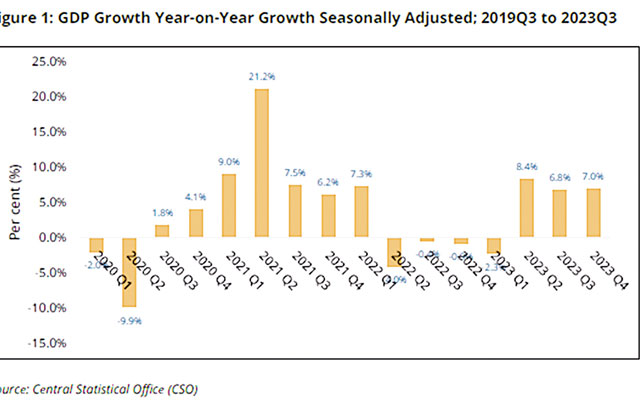By One Billion Rising | 2022-09-22
Marriage is regarded as a moment of celebration and a milestone in adult life.
However, early marriages are often prohibited and considered as an abomination in most families, communities as well as countries. This is particularly because child marriage ends childhood.
It negatively influences children’s rights to education, health and protection. These consequences impact not just the girl directly, but also her family, community and the country at large. According to UNICEF, child marriage refers to any formal marriage or informal union between a child under the age of 18 and an adult or another child.
It affects both girls and boys, but affects girls disproportionately.
In Sub-Saharan Africa Eswatini is recorded to have lowest rates of child marriage cases. Eswatini has committed to eliminate child, early and forced marriage by 2030 in line with target 5.3 of the sustainable development goals.
Therefore to achieve this results a holistic approach must be adopted to address early marriages as an issue.
Why child marriages happen?
There are so many arguments around early child marriages. Some claim that, ‘If girls are not married and are allowed to continue their education, they may be immoral and dishonor the families’. They support this statement by reasons such as,
‘Marrying girls during childhood enables the husband to socialise her to be submissive and obey him and his family’.
Daughters are or were frequently seen as burdens or commodities because of pervasive gender inequality.
Poverty-stricken parents often believe marriage will secure a daughter’s future by making a husband or his family responsible for her care.
This may be the case when parents face economic hardships or when girls are forced by poverty or circumstance to drop out of school and rather marry.
For family to gain money as dowries (emalobolo) as well as reduce number of people to be fed in the homestead.
In as much as it can be hard to imagine why someone would choose to have their child married off.
But for some people, child marriage can seem like the best or only option. Sometimes, because of traditional customs such as inhlanti (the giving of a younger sister for marriage to a woman’s husband, usually invoked when she cannot bear children of her own) and kwendzisa (an arranged marriage which can take place at a very young age) are prohibited but allowed by traditional authorities also promotes early marriages.
Why must early
marriages end?
A study by UNICEF revealed that the phenomenon of early marriage was related to the high poverty and social constraints due to conflicts, political and economical obstacles, instability, and shortage of services in education, housingand professional development. Consequently, it was common that parents would encourage their daughters to get married at an early age in hope that this marriage will enhance both their financial and social status.
However, early marriage for young girls is considered as a form of violation of human rights, since it compromises the physical, mental, psychological, educational and emotional development of girls. This tradition could be a harmful practice and consequently,
its harmful effects are many. For instance, girls will be denied the right to freely express their views, the right to be defended against detrimental and devastating traditional practices. Moreover, early marriage requires the performance of heavy household and marital responsibilities including the raising of children.
The question here raises itself, how will child mothers raise their children while they are still children themselves?
Girls and boys married as children more likely lack the skills, knowledge and job prospects needed to lift their families out of poverty and contribute to their country’s social and economic growth. Early marriage leads girls to have children earlier and more children over their lifetime, increasing economic burden on the household.
The lack of adequate investments in many countries to end child marriage is likely due in part to the fact that the economic case for ending the practice has not yet been made forcefully. A girl who is married as a child is more likely to be out of school completely. Of which, with every child bride we lose a future teacher, doctor, scientist, entrepreneur or political leader.
She is more likely to experience domestic violence and become infected with HIV/AIDS. She is more likely to have children when she is still a child. There are also more chances of her dying due to complications during pregnancy and childbirth.
As well as negatively impacting the girls who become child brides, early marriage also has a negative effect on the generation to come. Infants who are born to mothers who are just children or adolescents themselves have a higher risk of being stillborn or dying soon after birth.
Sadly, the children of child brides are 60 per cent more likely to die in the first year of life than those born to mothers older than 19. If the infants survive, they are more likely to have had a low birth weight, which can have a long-term impact on their health and their physical and cognitive development.
Recommendations
Ending child marriage involves tackling the many challenges that perpetuate the rights violation, such as gender inequality and discrimination, lack of education and poverty.
This includes the government and all stalk holders must support for development and participation of adolescent girls.
There must be strengthening of services to help adolescents at risk of or affected by, child marriage, particularly girls and raising awareness of the need to invest in and support girls, through compainghs such as Girls Not Brides.
Most importantly, reinforce legal systems that protect the rights of adolescent girls and boys. For example, the Children’s Protection and Welfare Act of 2012 the country adopted, which grants any person under 18 the right to refuse any custom or traditional practice that can negatively affect them.
The law penalises parents and guardians who collude with adult men to orchestrate child marriages through a practice known as kwendizisa. Ensuring that offenders face prison terms of up to 20 years as mentioned by this act.
share story
Post Your Comments Below
Over 2 000 interned paramedics are said to be unemployed 10 years after completing their training...

Eswatini's economic activity, measured by Gross Domestic Product (GDP), grew at a steady pace of ...

Nurses and other members of the medical staff at the Raleigh Fitkin Memorial (RFM) Hospital have ...

SOCCER - FOLLOWING the submission of the 16-team league proposal by elite league and NFD clubs, t...
All material © Swazi Observer. Material may not be published or reproduced in any form without prior written permission.
Design by Real Image Internet